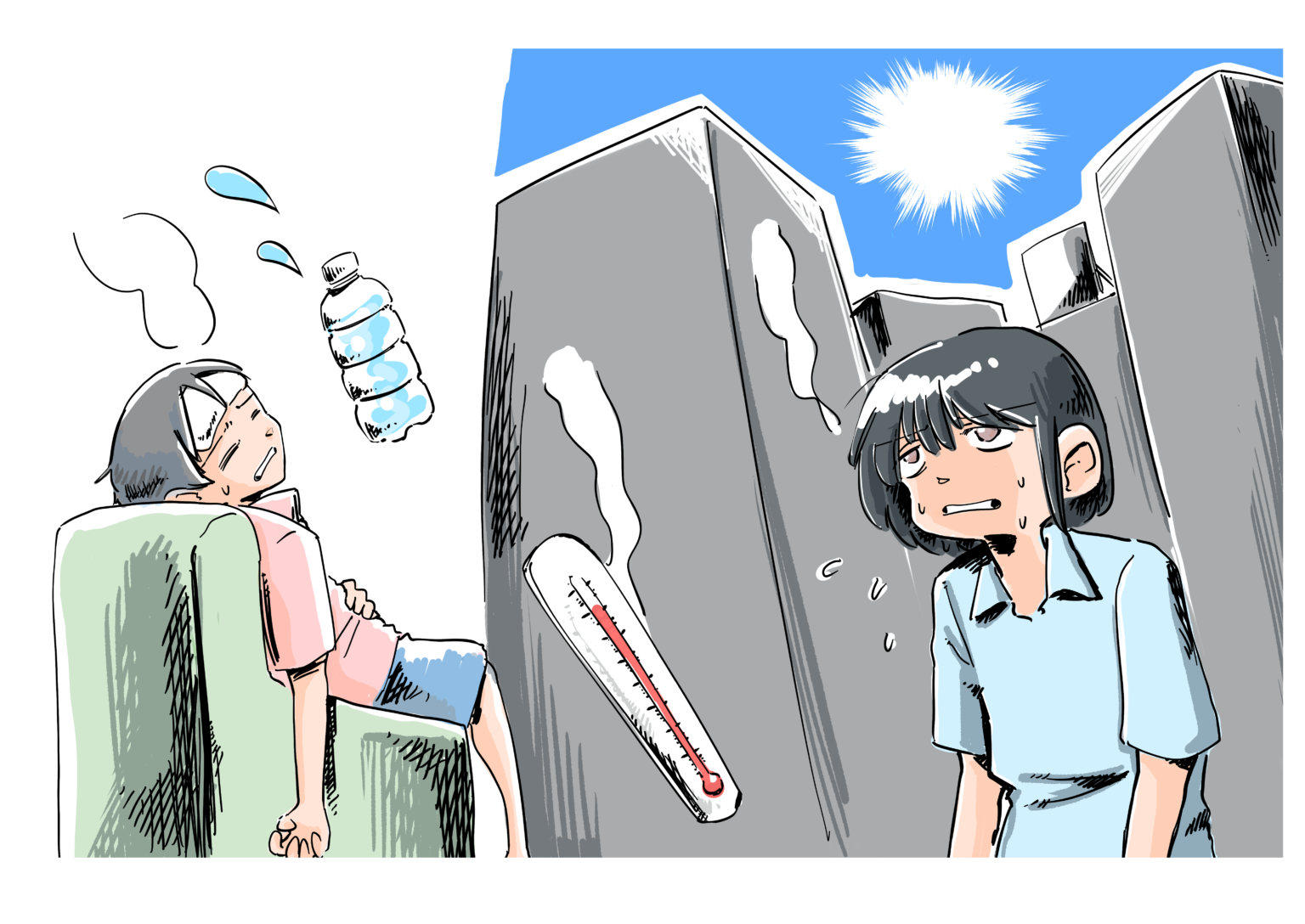
The average summer temperature in Japan from 1991 to 2020 has increased in many areas due to the global warming as evidenced the high number of hot summers in recent years. This means that summers which were previously considered unusually hot are now becoming a regular feature.
Prolonged hot summers can lead to droughts, along with droughts due to low rainfall, which in turn can lead to forest fires, causing damage to those forests and their living organisms. In addition, increased convective activity (the hotter the air near the surface, the greater the temperature difference with the air above) tends to increase atmospheric instability, leading to more and more intense thunderstorms and localized rainstorms.
Seawater temperatures are also on the rise, making tornadoes more likely. Seawater has a larger heat capacity than land and will store large amounts of heat if the heat wave lasts over a long period. Therefore, even after the heat wave subsides, it will not cool down immediately and will often persist. There are effects on coral reefs and on the creatures living in the seas affected.
In addition to the sharp increase in demand for electricity due to increased use of air conditioning equipment, sales of beer, soft drinks, frozen desserts, ice cream, insecticides, insect repellents and remedies for mosquito bites will also increase significantly, and demand for electricity will exceed supply. However, when the demand for electricity exceeds the supply, power outages can occur, causing considerable damage.
Cases of heat stroke and dehydration increase, and the loss of energy weakens the immune system, making people more susceptible to other diseases. When it’s hot outside, the temperature difference between an air-conditioned room and a hotter room is greater, making it harder for the body to regulate the temperature, which can have a negative impact on the body.
Not only that, but summer cold and flu viruses prefer heat and humidity, multiplying more frequently in extended conditions. The risk of food poisoning increases as food and drinks spoil more easily and germs multiply more quickly in a short period of time. Global warming will also likely lead to the spread in Japan of tropical infectious diseases, such as malaria and dengue fever.
Food crisis, the quality of crops will be affected the high temperatures at the time of emergence, leading to crop failure.